Portable Air Conditioners Should Be Your “Last Resort,” Experts Warn—Here’s Why
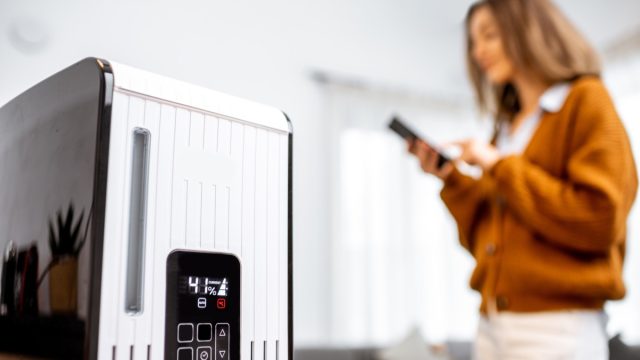
Summer is drawing closer, and the weather is heating up across the U.S. In fact, parts of the country are already experiencing record-breaking temperatures. But as you’re packing up your winter clothes and pulling out essentials for the new season, there’s one thing you may want to leave behind: your portable air conditioner. When it comes to cooling your space, experts recommend against this popular choice. Read on to find out why they warn that portable air conditioners should be your “last resort.”
READ THIS NEXT: 5 Things in Your Home That Are Grossing Your Guests Out.
Most people in the U.S. use air conditioning in their homes.
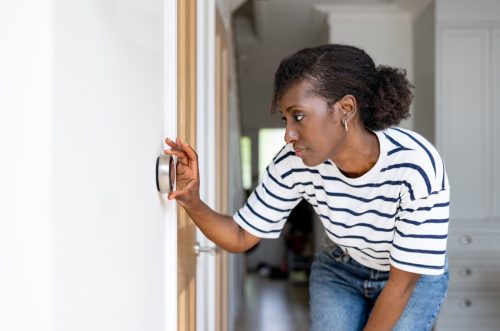
When the weather starts heating up, most of us are prepared to combat the higher temperatures. Nearly 90 percent of all U.S. households use air conditioning (AC), according to the latest data from the U.S. Energy Information Administration (EIA).
Most of that is central cooling, as two-thirds of households have a central AC unit. But 26 percent still manage to cool down their spaces without an entire household system by using individual units—and that percentage is even higher in certain regions.
“Although central AC units are the primary equipment type used in most of the United States, 50 percent of Northeast households primarily use individual AC units,” the EIA explained in its report. “Individual AC units include window and wall units, mini-splits, and portable units.”
If you’re one of those households using portable air conditioners, however, you may want to rethink that.
Experts advise against the use of portable air conditioners.
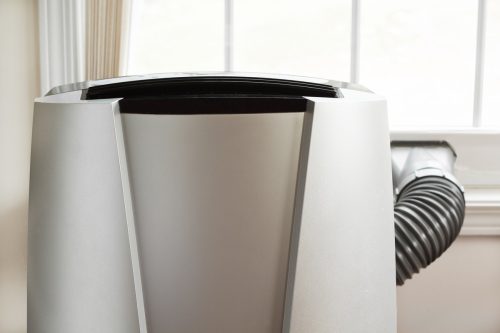
Portable air conditioners are a popular choice for people who don’t have central AC units—but they shouldn’t be, according to the experts at Consumer Reports. Per their guidance, people should think of “portable air conditioners as the cooling choice of last resort” when it comes to their spaces.
Through tests of the units, the consumer-based organization reports that most can hardly get hot rooms down to a minimum comfort level of 78 degrees Fahrenheit.
“A portable air conditioner is an alternative—but not an ideal one,” Chris Regan, who oversees Consumer Reports’ air conditioner tests, said in a statement.
Many of these units actually end up being returned to retailers each season by “dissatisfied customers,” the organization says.
For more home advice delivered straight to your inbox, sign up for our daily newsletter.
Window units provide more benefits to consumers.
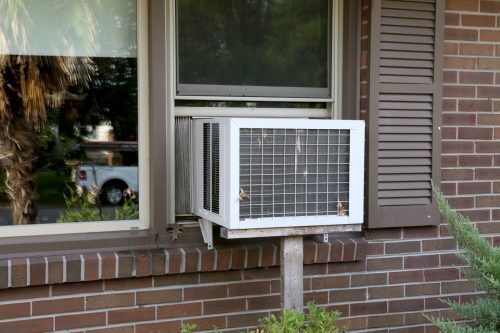
When pitting commonly-used individual AC units against each other, experts say a window unit is the winner every time.
“Window air conditioners should generally be considered a better option than portable ones,” Keith Sant, a real estate professional and the head of property acquisitions at Texas Cash House Buyer in Fort Worth Texas, tells Best Life.
According to Sant, this type of cooling equipment beats out portable units in two of the most important categories to consider: affordability and efficiency.
“Window units are relatively affordable and can often be found at a lower price point than comparable portable models,” he explains. “They can also be used in the same space for many years so there is less need to purchase additional equipment over time, which makes them a more cost-effective cooling solution over the long term.”
At the same time, window units also “tend to be more efficient than portable air conditioners,” according to Sant.
Through its air conditioner tests, Consumer Reports said they found it takes a portable unit at least 20 minutes or longer to lower the temperature from 90 degrees Fahrenheit to 85 degrees.
“By comparison, the best window air conditioners can cool the room by 10 degrees Fahrenheit in about 15 minutes or less,” they reported.
But some people can’t have window units.
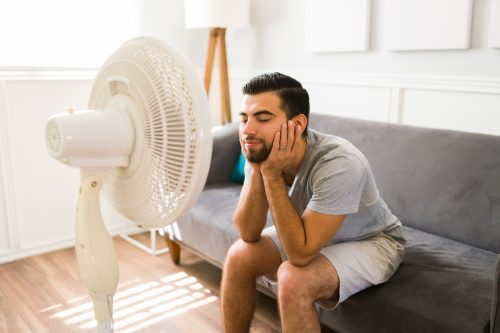
A portable AC may be your only option if you want to upgrade from a regular fan, however. As Kyle Leman, a home expert and the owner of Crossroads Foundation Repair, explains, window units are not a “viable option” for everyone. This could be because of building restrictions on window modifications or the absence of usable window openings.
“Portable air conditioners offer an alternative cooling solution as they do not require a permanent window installation,” he says. “They can be placed anywhere with a suitable exhaust venting option, such as through a sliding glass door or a specially designed vent kit.”
If you have to use a portable unit, Consumer Reports recommends following their tips to make the most out of your equipment. First things first? You need to make sure you’re installing it correctly.
“All portable air conditioners come with a kit that you install in a window. It consists of a plastic panel with connections for the exhaust hose, and can be installed horizontally in a double-hung window or vertically in a sliding window,” they explain. “Make sure all your connections are tight, and seal any air gaps.”
You should also get a ceiling fan, which can help make the room feel cooler by creating a breeze. And make sure to block out the sun whenever possible by closing your curtains and shades, as this can help your room from overheating under its rays.